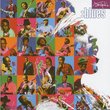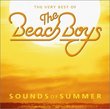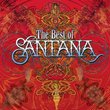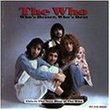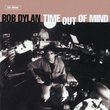| All Artists: Quicksilver Messenger Service Title: Best of Members Wishing: 2 Total Copies: 0 Label: EMI Special Products Release Date: 3/21/1995 Genres: Pop, Rock, Classic Rock Style: Psychedelic Rock Number of Discs: 1 SwapaCD Credits: 1 UPC: 077775726329 |
Search - Quicksilver Messenger Service :: Best of
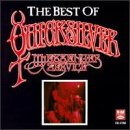 | Quicksilver Messenger Service Best of Genres: Pop, Rock, Classic Rock
|
Larger Image |
CD DetailsSimilarly Requested CDs
|
CD ReviewsA Great Sampler of Legendary Band M. Allen Greenbaum | California | 10/12/2004 (5 out of 5 stars) "An essential 1960's San Francisco band, QSM never hit it as big commercially as some of their competitors, but they retain a huge following. Their biggest asset was the incredible lead guitarist, John Cipollina, whose biting and swirling riffs are incredibly powerful. Other major contributors were rhythm guitarist and vocalist Gary Duncan, bassist David Freiberg, and session man Nicky Hopkins (pianist with the Stones and others), drummer Greg Elmore, and erstwhile founder Dino Valenti. Their self-titled first album was released June 30, 1967 (most sites list the year as 1968). This budget sampler opens with an energetic, memorable version of Bo Diddley's "Who Do You Love" with a bass line used by Led Zeppelin in "Whole Lotta Love." The economical but maximally effective lead guitar riffs from John Cipollina's Gibson burst with energy. Seconds after you hear the band's signature rambling, whirling, swirling sounds (with the bottom covered superbly by bassist David Frieberg and drummer Greg Elmore) you know you're in San Francisco's psychedelic period. The "dual guitar attack" of Cipollina and Gary Duncan functions not just as a showcase, but also as tone-setting punctuation marks, infusing the sound with a trippy but tight groove. Unfortunately, this track lasts only about 3 ½ minutes. For a true feeling of the band's sound, get the 6-part, 25-minute version on the great "Happy Trails" album. "What You Gonna Do About Me" is a truly mixed bag, a stoned sounding vocal that's just credible, and a mix of Latin and jazz inflected overlays: Horns, bongos, a Santana-like beat. At 6:42, it's too long, especially for a mediocre recording. Although lauded for it's revolutionary lyrics, some of them quite good, what do you do with a line like "I smoke marijuana, but I can't get behind your war?" "Shady Grove" is the title track from a 1969 release on Capitol. Beware: The "Shady Grove" CD sold at Amazon is a British import with reported sound problems. The song itself is spectacular; San Francisco out-Stones the Stones (Hopkins gets a lot of credit for this), and Cipollina lays down some of the greatest stinging rock guitar in history. At about 38 seconds in, the song hits its stride. It's a masterpiece, an incredible combination of seminal rock licks embedded in folk/country and the blues. At only three minutes, though, it leaves you wanting more. "Just for Love" is the album title track from 1970. The song begins with the kind of cowboy/rustic sound typical of the folk roots of early SF rock. The vocal is a bit wiry (QSM was not renowned for its singing), but its loose style somehow fits the overall tone. Like many of the poorer QSM songs on the album, this was probably better in concert, and some hints of its potential appear towards the end of the song. This is the first album featuring founding member Dino Valenti (who didn't appear on the previous three albums, partly because of drug busts). Despite the usual criticism of their vocals, the band sounds quite good on several numbers, especially when there's some backup singing. "Fresh Air" was a big hit (pun intended). It's a little more conventionally structured, with a blues foundation, and has a great rumbling Airplane-like bass by Frieberg. There are very good vocals and a tasty, somewhat subdued solo at the bridge that shows great harmony and dynamics, building as it goes. Nicky Hopkins plays a jazzy Bill Evans solo, all floaty, and then changes gears to a rock mode joined by the rest of the band. "Pride of Man" was on the first album and features strong singing and harmony, shimmering drums by Elmore, and a rocking bass line by Frieberg. It's not as much a jam song, at least on this recording, but shows how commercially viable this band was (even more so than does "Fresh Air") It has a beautifully toned guitar-solo. Ff AM radio wasn't so screwed up back then, this would have received a lot more airplay. Like most of their contemporaries during this era, the music was limited to "progressive" FM stations. Another critical/commercial success was "Dino's Song." It features a semi-funky beat, an inventive walking bass line, note-perfect guitar fill-ins, and some of the most even singing (both solo and harmonies) on the album. There's very creative guitar work throughout the song, and the entire number resembles the minimalism and quirky figures of L.A.-based Arthur Lee and Love. Commercially and artistically, this is one of their best. "Joseph's Coat" ("You wanna feel like a man; you gotta act like a man") is a little message-heavy at first, but horns and guitar and assorted noises soon cut through any pretension. There are some nice vocal harmonies a la Airplane and it concludes with an overly long effects ridden ending. It's a little jokey, yet enjoyable--like a cheesy soundtrack to a bad western. Long-Haired Lady (5:52) is a sweet ballad in search of a better vocalist. Still, it may be a sentimental favorite for veteran fans of QSM. CSCFB is a typical, indistinct electric blues of the period; the QSM sensibility is gone, despite the presence of Duncan, Frieberg, and Elmore. It's off "Comin' Thru (1972)," the second post-Cipollina album by the group. (Cipollina left in October 1970, although he was back for a reunion album in 1975.) I recommend this highly as a budget, "starter" CD for those not familiar with the band. Otherwise, any of the first three albums (especially the 2nd and 3rd) are your best bet. Ideally, to get a true sonic and visual picture of the band, you'd have to have heard them in concert. There are a lot of excellent web sites devoted to QSM in general, and Cipollina in particular, I recommend checking these out. " Reminds me of the good old days M. Allen Greenbaum | 02/14/2001 (4 out of 5 stars) "I have had this CD for some time. I love it. A good collection of Quicksilver songs. A nice one-album collection. Great for all of us that remember seeing Quicksilver at the Filmore, Filmore West, Avalon, or Family Dog on the Great Highway. The guitar work is great! Clean, clear music without the use of gizmos and tricks. Should be playd LOUD!" A good introduction John Peter O'connor | 05/17/2000 (3 out of 5 stars) "Here you can find eleven tracks from assorted parts of the Quicksilver Messenger Service catalogue. The musical content is mellow, mostly guitar oriented rock.Musically, nothing here stands out as especially good or especially bad. I could not pick a favourite as the songs here are all likeable enough if not special.About half of the QMS albums available today seem to be compilations, collections of out-takes etc. If you are looking for an introduction to the band, this is a very good place to start.In terms of the selection of material, any of the compilations will provide a reasonable intoduction. For me though, this CD wins a competition of equals by virtue of its price. It is a real bargain for a decent overview of the band's music. If you are new to QMS, you should certainly buy this first."
|

 Track Listings (11) - Disc #1
Track Listings (11) - Disc #1


